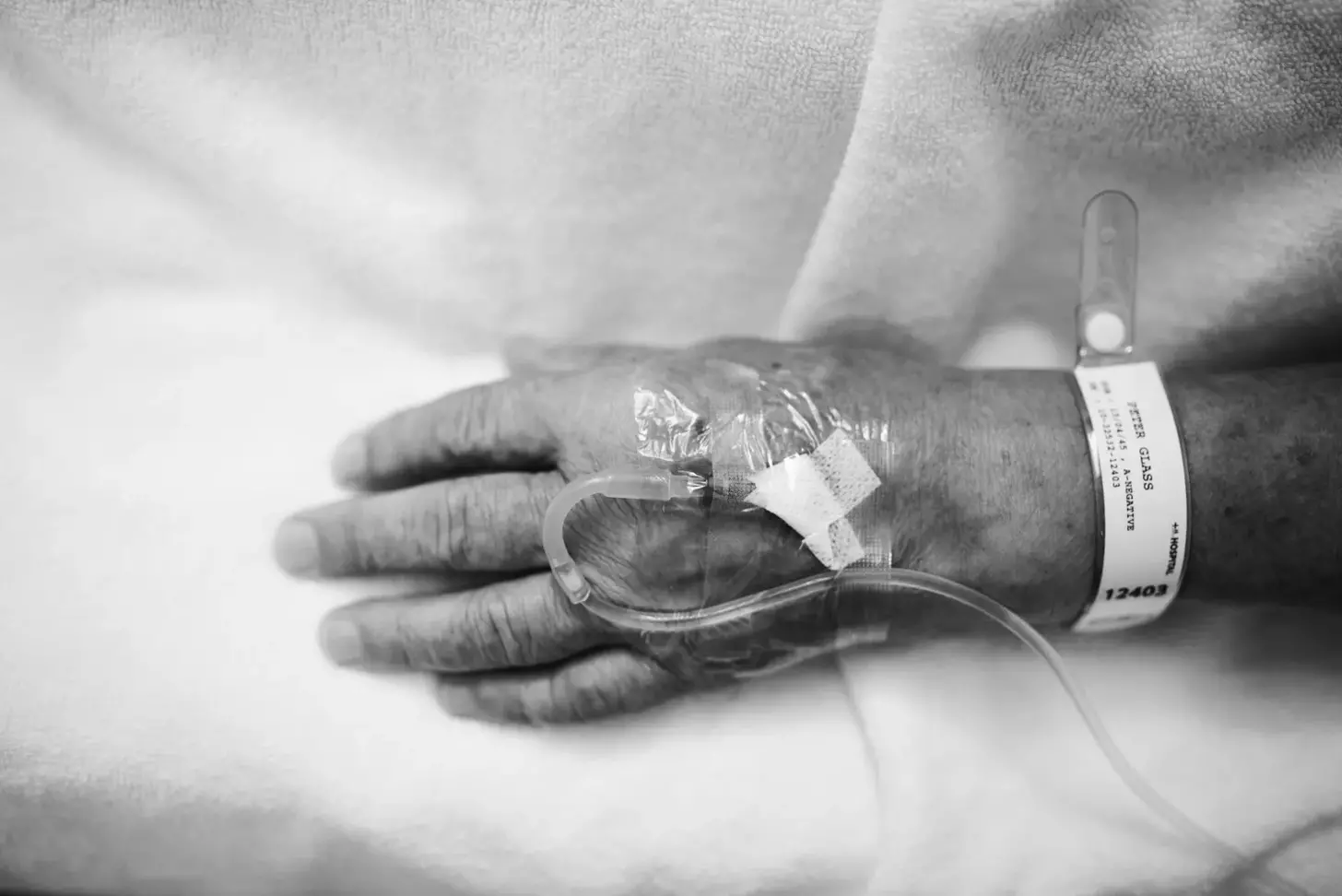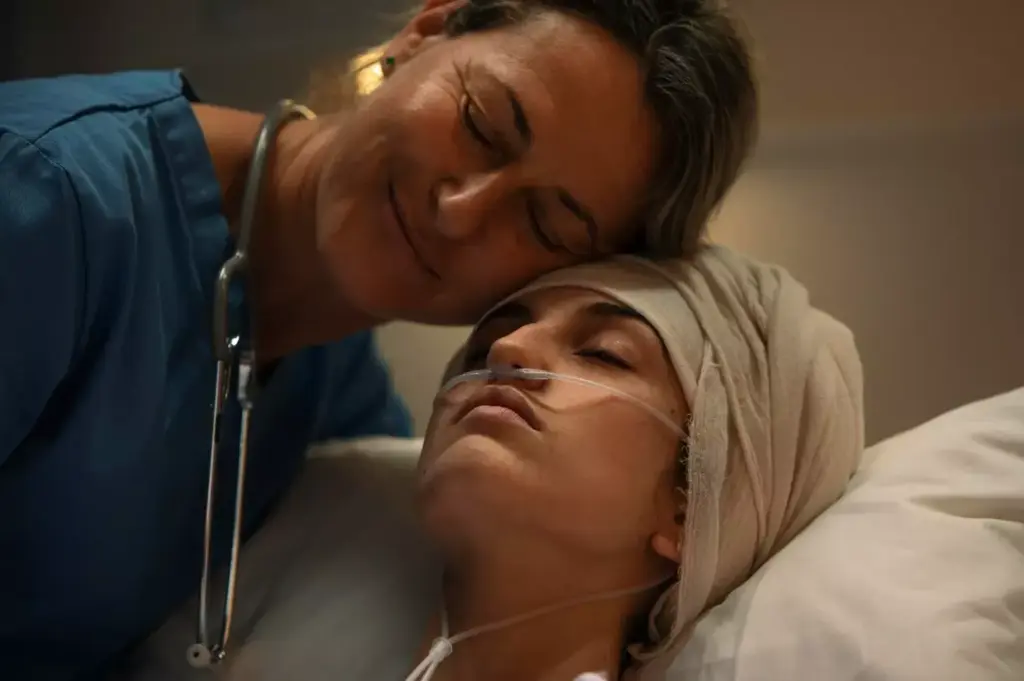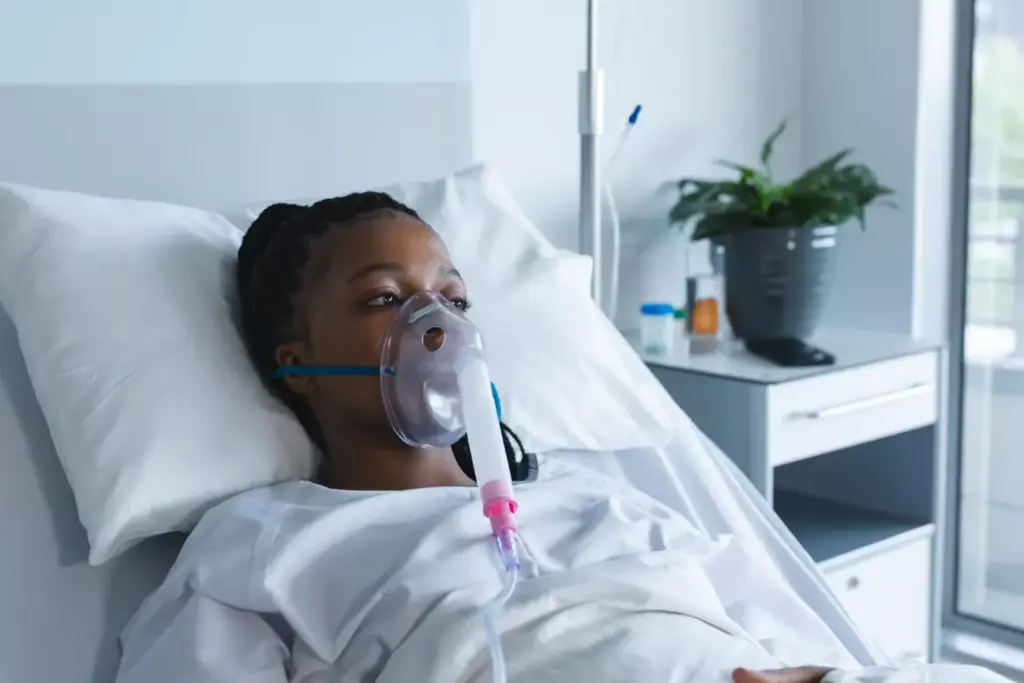
Undergoing chemotherapy is a challenging experience, and the journey doesn’t end when the treatment does. Many cancer survivors face lasting challenges that can significantly impact their quality of life.
Up to 90% of cancer survivors report ongoing fatigue and neuropathy months or years after treatment. At Liv Hospital, we understand the importance of comprehensive care beyond the treatment phase. We are committed to providing trusted insights and support to help you navigate life after chemotherapy.
Our goal is to empower you with knowledge about the potential long-term side effects of cancer treatment, enabling you to make informed decisions about your health.
Key Takeaways
- Chemotherapy can lead to long-lasting cognitive impairment.
- Chronic fatigue is a common issue among cancer survivors.
- Neuropathy can persist for years after treatment.
- Heart and lung complications are potential long-term risks.
- Understanding these effects can help in managing them effectively.
Understanding Chemotherapy and Its Lasting Effects

The impact of chemotherapy extends beyond the treatment period, often leaving survivors with long-term side effects. Chemotherapy is a powerful tool in the fight against cancer, but its effects on the body can be far-reaching.
Chemotherapy targets rapidly dividing cancer cells, but it can also affect healthy cells that divide quickly, such as those in the bone marrow, digestive tract, and hair follicles. This dual effect is the root of many long-term side effects of chemotherapy.
How Chemotherapy Affects Healthy Cells
Chemotherapy’s impact on healthy cells can lead to a range of immediate and long-term side effects. Some of the ways chemotherapy affects healthy cells include:
- Damage to the bone marrow, potentially leading to blood disorders
- Impact on the digestive system, causing issues like nausea and diarrhea
- Hair loss due to the effect on hair follicles
These immediate effects are well-documented, but the lasting effects of chemo can be just as significant. Many cancer survivors express ongoing challenges, with sentiments like ‘chemo ruined my life’ highlighting persistent issues.
Why Some Side Effects Persist for Years
Recent studies have shown that up to 50% of patients experience neuropathy and up to 90% report fatigue months or years post-treatment. The reasons for these persistent side effects are multifaceted:
- Chemotherapy can cause permanent damage to certain cells and tissues, leading to long-term complications.
- The body’s ability to recover from chemotherapy varies greatly among individuals, influenced by factors like age, overall health, and the specific chemotherapy regimen used.
Understanding these long-term side effects of chemotherapy and radiation is crucial for managing patient care both during and after treatment. By acknowledging the potential for these effects, healthcare providers can offer more comprehensive support to cancer survivors.
The long term effects of cancer treatment, including chemotherapy, underscore the need for ongoing care and monitoring. As we continue to improve cancer treatment protocols, it’s equally important to address the quality of life for survivors.
Cognitive and Neurological Complications

Cognitive and neurological issues are among the most challenging long-term side effects of chemotherapy. These complications can significantly impact a patient’s quality of life, making everyday tasks and decisions more difficult.
Cognitive Impairment (“Chemo Brain”)
Cognitive impairment, commonly referred to as “chemo brain,” encompasses a range of cognitive difficulties, including memory loss, difficulty concentrating, and reduced mental clarity. Research suggests that chemotherapy can affect the brain’s ability to function normally, potentially due to the toxicity of the drugs used.
We are seeing a growing interest in understanding and mitigating the effects of chemo brain. For instance, CRISM Therapeutics’ ChemoSeed platform is exploring innovative ways to deliver chemotherapy directly to tumor sites, potentially reducing systemic toxicity and the risk of cognitive impairment.
Peripheral Neuropathy
Peripheral neuropathy is another common neurological complication of chemotherapy. It involves damage to the peripheral nerves, leading to symptoms such as numbness, tingling, and pain, typically in the hands and feet. The severity and duration of peripheral neuropathy can vary depending on the type of chemotherapy used and individual patient factors.
Managing peripheral neuropathy often requires a multi-faceted approach, including medication to alleviate symptoms and potentially adjusting chemotherapy regimens to minimize further nerve damage.
Long Term Side Effects of Chemotherapy on Physical Energy
Cancer survivors often report persistent fatigue and energy-related issues post-chemotherapy. This lingering fatigue can significantly impact daily life, making everyday tasks challenging. We will explore the causes and effects of this condition, as well as potential interventions.
Chronic Fatigue Syndrome
Chronic fatigue syndrome is a prevalent issue among cancer survivors, affecting up to 90% of patients months or even years after treatment. This condition is characterized by persistent and profound fatigue that is not alleviated by rest. The exact mechanisms behind chemotherapy-induced chronic fatigue are complex, involving changes in the body’s energy production and utilization.
Patients experiencing chronic fatigue often report difficulties in maintaining their usual activities, leading to a decreased quality of life. It’s essential for healthcare providers to acknowledge and address this condition to help patients manage their symptoms effectively.
Sleep Disturbances and Insomnia
Sleep disturbances and insomnia are also common among cancer survivors, further exacerbating fatigue. These sleep-related issues can be triggered by the stress and anxiety associated with cancer treatment, as well as changes in the body’s physiological response to chemotherapy.
For those struggling with sleep disturbances, establishing a consistent sleep schedule and creating a relaxing bedtime routine can be beneficial. Understanding the broader impacts of chemotherapy can also help patients and caregivers develop strategies to manage these long-term side effects.
- Practice relaxation techniques, such as deep breathing or meditation, to reduce stress.
- Limit exposure to screens and electronic devices before bedtime.
- Create a comfortable sleep environment, ensuring it is dark, quiet, and cool.
By addressing these issues and implementing appropriate interventions, cancer survivors can improve their quality of life and better manage the long-term side effects of chemotherapy on physical energy.
Cardiovascular and Pulmonary Damage
The impact of chemotherapy on cardiovascular and pulmonary health is a growing concern for cancer survivors. Chemotherapy and radiation therapy, while effective in treating cancer, can have lasting effects on the heart and lungs, increasing the risk of long-term complications.
We recognize that the risk of cardiovascular and pulmonary damage is a significant concern for cancer survivors. The treatments that save lives can also lead to heart complications and pulmonary issues later on.
Heart Complications and Heart Failure Risk
Chemotherapy can cause damage to the heart muscle, leading to potential heart complications. Certain chemotherapy drugs, such as anthracyclines, are known to increase the risk of heart failure. We must monitor heart health closely during and after treatment to mitigate these risks.
The risk factors for heart complications include:
- Previous heart disease
- High blood pressure
- Diabetes
- Family history of heart disease
Understanding these risk factors can help us take proactive steps to protect heart health.
| Chemotherapy Drug | Heart Complication Risk |
|---|---|
| Anthracyclines | High risk of heart failure |
| Trastuzumab | Potential heart muscle damage |
Pulmonary Fibrosis and Lung Function Decline
Pulmonary fibrosis, a condition characterized by scarring of the lungs, is another potential long-term side effect of chemotherapy and radiation therapy. This scarring can lead to a decline in lung function, making it harder to breathe.
Symptoms of pulmonary fibrosis include shortness of breath, dry cough, and fatigue. Early detection and management are crucial to slowing disease progression.
We must be aware of the potential for pulmonary complications and work to minimize risks through careful treatment planning and follow-up care.
Endocrine System Disruptions
The endocrine system’s response to chemotherapy can have lasting effects on patients’ health. Chemotherapy, while targeting cancer cells, can also impact the endocrine system’s ability to regulate hormones, leading to various complications.
Thyroid dysfunction is one of the potential long-term side effects of chemotherapy. The thyroid gland plays a crucial role in regulating metabolism, and when it is affected, it can lead to conditions such as hypothyroidism or hyperthyroidism. “Chemotherapy-induced thyroid dysfunction is a recognized complication, particularly with certain types of chemotherapy agents,” as noted in clinical studies.
Thyroid Dysfunction
Thyroid dysfunction can manifest in different ways, including fatigue, weight changes, and mood disturbances. Regular monitoring of thyroid function is essential for patients who have undergone chemotherapy. We recommend that patients work closely with their healthcare providers to manage any thyroid-related issues.
Bone Density Loss and Osteoporosis
Chemotherapy can also lead to bone density loss and osteoporosis. Certain chemotherapy agents can affect bone health by reducing bone density, making bones more susceptible to fractures. Hormonal therapies, which are common in treatments like those for prostate cancer, can also contribute to bone density loss.
As noted by healthcare professionals, “early detection and management of bone density loss are critical to preventing long-term skeletal complications.” This can involve lifestyle changes, such as diet and exercise modifications, as well as medical interventions to strengthen bones.
We emphasize the importance of a comprehensive care plan that includes monitoring and addressing potential endocrine disruptions. By doing so, we can help mitigate the long-term effects of chemotherapy on the endocrine system.
Reproductive and Hormonal Lasting Effects of Chemotherapy
Cancer treatment, particularly chemotherapy, can have profound and lasting effects on reproductive and hormonal health. As we continue to explore the long-term side effects of chemotherapy, it’s essential to understand the impact on reproductive well-being and hormonal balance.
Fertility Issues
Fertility concerns are a significant worry for many cancer survivors. Chemotherapy can damage the reproductive cells, leading to infertility or reduced fertility in both men and women. The extent of the damage depends on various factors, including the type and dose of chemotherapy, as well as the individual’s age and overall health.
For women, chemotherapy can cause premature ovarian failure, leading to infertility. The risk is higher with certain chemotherapy agents and at older ages. For men, chemotherapy can damage sperm production, potentially leading to temporary or permanent infertility.
| Chemotherapy Agent | Risk to Fertility |
|---|---|
| Alkylating agents | High risk of infertility |
| Anthracyclines | Moderate risk, varies with dose |
| Plant alkaloids | Variable risk, depends on specific agent |
Premature Menopause and Hormonal Changes
Chemotherapy can also induce premature menopause in women, leading to a range of hormonal changes. This condition can result in symptoms such as hot flashes, mood swings, and vaginal dryness. The onset of premature menopause can be sudden, and its effects can be long-lasting.
Hormonal changes due to chemotherapy can affect both men and women. In men, it can lead to reduced testosterone levels, potentially causing fatigue, decreased libido, and other symptoms. In women, the reduction in estrogen levels can lead to osteoporosis and increased risk of cardiovascular diseases.
Understanding these reproductive and hormonal effects is crucial for cancer survivors. We must consider these factors when developing post-treatment care plans to mitigate the long-term impacts of chemotherapy.
Secondary Cancer Risks and Immune System Effects
Chemotherapy, while effective in treating cancer, can have long-term side effects, including an increased risk of secondary cancers and compromised immune function. As we continue to understand the implications of cancer treatment, it’s crucial to address these risks and explore strategies for mitigating them.
Increased Risk of Secondary Malignancies
One of the significant long-term risks associated with chemotherapy is the development of secondary malignancies. Studies have shown that certain chemotherapy agents can damage the DNA of healthy cells, leading to the formation of new cancers. We must consider this risk when evaluating the overall impact of chemotherapy on a patient’s health.
The risk factors for secondary malignancies vary depending on the type of chemotherapy, the dose, and the duration of treatment. For instance, alkylating agents are known to increase the risk of developing secondary leukemia. Understanding these risks helps us tailor follow-up care to individual patients.
| Chemotherapy Agent | Risk of Secondary Malignancy |
|---|---|
| Alkylating Agents | High risk of secondary leukemia |
| Topoisomerase II Inhibitors | Increased risk of secondary leukemia |
| Anthracyclines | Risk of cardiotoxicity and secondary malignancies |
Compromised Immune Function
Chemotherapy can also significantly impact the immune system, leading to compromised immune function. This makes patients more susceptible to infections and potentially affects their ability to respond to vaccines. For example, GSK’s Shingrix vaccine is approved for preventing shingles in adults aged 18 years and over who are at increased risk due to immunodeficiency or immunosuppression.
We recommend that cancer survivors consult with their healthcare providers about strategies to boost their immune function, such as vaccinations and lifestyle modifications. Maintaining a healthy immune system is crucial for overall well-being and reducing the risk of secondary infections.
By understanding the risks of secondary cancer and immune system effects, we can better support cancer survivors in their recovery journey. It’s essential to balance the benefits of chemotherapy with its potential long-term risks and to develop personalized follow-up care plans.
Psychological and Emotional Long-Term Side Effects
Chemotherapy’s impact extends beyond physical health, affecting patients emotionally and psychologically. As we support cancer survivors through their recovery, it’s crucial to address the long-term psychological and emotional side effects they may experience.
Depression and Anxiety
Depression and anxiety are common among cancer survivors, often manifesting as a result of the trauma and stress associated with chemotherapy. We recognize that these conditions can significantly impact a survivor’s quality of life, making it essential to provide comprehensive mental health support.
Studies have shown that the risk of developing depression and anxiety can be higher in cancer survivors compared to the general population. Early intervention and support are critical in managing these conditions effectively.
Post-Traumatic Stress in Cancer Survivors
Post-traumatic stress disorder (PTSD) is another significant concern for cancer survivors. The experience of undergoing chemotherapy can be traumatic, leading to symptoms such as flashbacks, severe anxiety, and uncontrollable thoughts about the treatment.
We emphasize the importance of recognizing the signs of PTSD and providing appropriate support. This includes counseling and therapy tailored to the individual’s needs, helping them navigate their recovery journey.
| Psychological Effect | Symptoms | Support Measures |
|---|---|---|
| Depression | Persistent sadness, loss of interest, changes in appetite | Counseling, medication, lifestyle changes |
| Anxiety | Excessive worry, fear, restlessness | Cognitive-behavioral therapy, relaxation techniques |
| Post-Traumatic Stress | Flashbacks, severe anxiety, uncontrollable thoughts | Trauma-focused therapy, support groups |
By understanding and addressing these psychological and emotional long-term side effects, we can better support cancer survivors in their recovery and improve their overall quality of life.
Conclusion: Navigating Life After Chemotherapy
Navigating life after chemotherapy requires comprehensive support and care. As we have discussed, the long term effects of chemotherapy can be significant, affecting various aspects of a patient’s life. At Liv Hospital, we are committed to providing world-class healthcare with complete support for international patients.
Understanding the chemotherapy side effects long term is crucial for managing and mitigating their impact. Our team is dedicated to helping patients navigate these challenges, ensuring they receive the care needed to improve their quality of life.
By providing preventive and curative care, we empower patients to take control of their health post-chemotherapy. Our commitment to implementing the latest academic protocols ensures that our patients receive the best possible care, addressing the long term effects of chemotherapy effectively.
What are the long-term side effects of chemotherapy?
Chemotherapy can cause a range of long-term side effects, including cognitive impairment, peripheral neuropathy, chronic fatigue syndrome, sleep disturbances, cardiovascular and pulmonary damage, endocrine system disruptions, reproductive and hormonal changes, and increased risk of secondary malignancies.
How does chemotherapy affect healthy cells?
Chemotherapy targets rapidly dividing cancer cells, but it can also damage healthy cells, leading to a range of side effects. Healthy cells that are often affected include those in the bone marrow, digestive system, and hair follicles.
What is “chemo brain” and how is it managed?
“Chemo brain” refers to cognitive impairment caused by chemotherapy, which can manifest as memory loss, difficulty concentrating, and decreased mental clarity. Management strategies include cognitive training, lifestyle changes, and cognitive rehabilitation.
Can chemotherapy cause heart problems?
Yes, chemotherapy and radiation can cause cardiovascular damage, increasing the risk of heart complications and heart failure. Patients who have undergone chemotherapy should be monitored for cardiovascular risk factors and receive regular check-ups.
How does chemotherapy affect fertility?
Chemotherapy can damage reproductive cells, leading to fertility issues in both men and women. Patients who are concerned about fertility should discuss options with their healthcare provider before undergoing chemotherapy.
What is the risk of secondary malignancies after chemotherapy?
Chemotherapy can increase the risk of secondary malignancies, particularly in patients who have received high doses or prolonged treatment. Regular follow-up care and monitoring can help detect any potential issues early.
How can I manage chronic fatigue syndrome after chemotherapy?
Managing chronic fatigue syndrome requires a multi-faceted approach, including lifestyle changes, such as pacing activities, improving sleep habits, and engaging in regular exercise. Patients may also benefit from cognitive behavioral therapy and other interventions.
What are the long-term effects of chemotherapy on mental health?
Chemotherapy can have a significant impact on mental health, increasing the risk of depression, anxiety, and post-traumatic stress. Patients should be aware of these risks and seek support from mental health professionals if needed.
Can chemotherapy cause thyroid dysfunction?
Yes, chemotherapy can disrupt thyroid function, leading to hypothyroidism or hyperthyroidism. Patients should be monitored for thyroid dysfunction and receive regular check-ups.
How can I mitigate the long-term side effects of chemotherapy?
Mitigating the long-term side effects of chemotherapy requires a comprehensive approach, including regular follow-up care, lifestyle changes, and interventions targeted at specific side effects. Patients should work closely with their healthcare provider to develop a personalized plan.
What is the impact of chemotherapy on bone density?
Chemotherapy can lead to bone density loss and osteoporosis, particularly in patients who have received certain types of chemotherapy or have other risk factors. Patients should discuss bone health with their healthcare provider and take steps to maintain bone density.
How does chemotherapy affect the immune system?
Chemotherapy can compromise immune function, increasing the risk of infections and other complications. Patients should take steps to maintain immune function, such as practicing good hygiene and staying up-to-date on recommended vaccinations.
a








